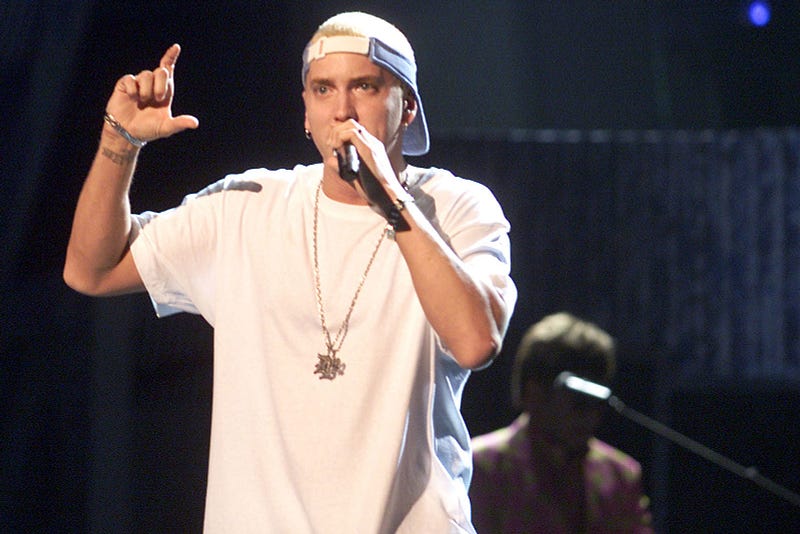
“Beef rap, could lead to getting teeth capped/Or even a wreath for mom dukes on some grief crap/I suggest you change your diet/it can lead to high blood pressure if you fry it/Or even a stroke, heart attack, heart disease/It ain’t no starting back once arteries start to squeeze.” This nuanced lyrical display was showcased by the gone, but never forgotten, legendary rapper MF DOOM. “Beef” is the term most commonly associated with feuding musical artists. Just as its coinciding food of the same name, musical beef can have multiple courses, often consisting of antagonistic displays of wordplay, thematic tropes or suggestive statements. Disses are what gives these approaches their flavor. Fans may believe that only the most publicized battles between artists result in inflammatory lyrics or tracks, but unbeknownst to many, there is a long and rich history of musical conflicts that range from petty to outright egregious.
The form of diss with the least substance are those done in jest. These are often a product of an artist’s character that they portray through their music, and have the intention of stirring up unprecedented drama. Eminem is someone who has mastered this method of polarizing speech. Even though the Detroit rapper had many clashes on a grander scale, much of his early material was humor that was at the expense of unknowing victims. In his 2002 track titled “Without Me”, Eminem unleashes a barrage of irreverent criticisms, including mocking former Vice-President Dick Cheney’s health concerns, as well as MTV and the FCC’s strict censorship regulations, that Eminem often fell victim to. While these can be understandably frustrating as the target of these attacks, they are not as personal as the next caliber of disses: thematic allusions.
From 1999 to 2002, boy-band extraordinaire Justin Timberlake and rising pop-star Britney Spears had a widely-broadcasted relationship. After three years of romance though, Timberlake had allegedly discovered that Spears was having an affair at the beginning of his newfound solo-stardom. Thus, Timberlake released “Cry Me A River” as a single for his debut solo album in 2002, featuring a music video that depicts the singer spying on their ex-lover, evoking references to Spears’ accused unfaithfulness. While this track never directly mentions its inspiration by name, its use of thematic rhetoric and lyrical contents are suggestive enough that it did not need to be explicitly revealed.
The next step up is the strategy of lyrical suggestions. Albeit, there is also no acknowledgement of names, but the damage can still be just as searing. For example, everybody knows that The Beatles had an extremely messy break-up in 1970, while many assume that Yoko Ono was the catalyst for such a disaster, it is clear that hard feelings remained even after their split. On John Lennon’s 1971 track titled “How Do You Sleep?” the former Beatle was consumed by resentment for former bandmate Paul McCartney (as affirmed by Lennon himself in a 1981 interview with
Playboy
). Lennon dove head-first into the beef by kicking off the track with the following lyrics: “So Sgt. Pepper took you by surprise/You better see right through that mother’s eyes/Those freaks was right when they said you was dead/The one mistake you made was in your head.” Referencing both a prior Beatles album, as well as conspiracy theories that claimed McCartney had died in a freak accident years ago, Lennon decimated his former peer in such a blunt, but subversive fashion, which ultimately paves the way to the final execution of a diss in all its confrontational glory.
There were two beefs that defined the beginning of the 21st century, a critical time for the growth of hip-hop as a mainstream genre: Nas vs. Jay-Z and 50 Cent Vs. Ja Rule. Jay-Z and Nas’ battle stemmed from the two artists both reaching for the crown that would certify them as the king of the New York hip-hop scene. Nas’ debut
Illmatic
is often mentioned in the discussion as the best rap album of all time, but after a stunning entrance into the game, the public agreed that the Queens rapper’s quality massively fell off. Jay-Z was steadily growing, and with the help of Kanye West’s production, became the most popular rapper in the world. They were set for collision, and collide they did. Jay-Z’s “Takeover” was a broad series of insults hurled towards “phony” peers that came up as artists with him, but Nas’ “Ether” took it to another level. Throughout “Ether”’s almost four and a half minutes of run-time, listeners were able to witness a verbal assault that was as direct as one can get, including its continuous refrain that exclaims “F**k Jay-Z” in a distorted candor. However, 50 Cent and Ja Rule’s duel began on a more violent tone. When one of 50’s associates allegedly robbed Ja Rule at gunpoint, it started a brawl that would last for years. While Ja never truly asserted himself through his music, 50 Cent’s “Back Down” served as a nuclear bomb for Ja Rule’s career. After 50 questioned his masculinity, claimed he had more fans from Ja Rule’s hometown, and ended the onslaught by verbally taking his seat upon New York’s throne of hip-hop, Ja Rule’s reputation was forever tarnished.
Beef is all good fun until someone gets hurt though. In the case of The Notorious B.I.G. and 2Pac, that is exactly what happened. As the East and West-coast fissure in hip-hop became a crater in the 90s, the two aforementioned artists were the ambassadors for their respective locations. What started as an enthralling skirmish between two of the greatest minds in hip-hop history ended in death, reminding listeners that musical acts are not always acting. It is understandable to enjoy fair weather drama when that is exactly what it is, but as it is evident through the extensive history of the diss, its level must be understood in order to prevent it from escalating into reality.
























